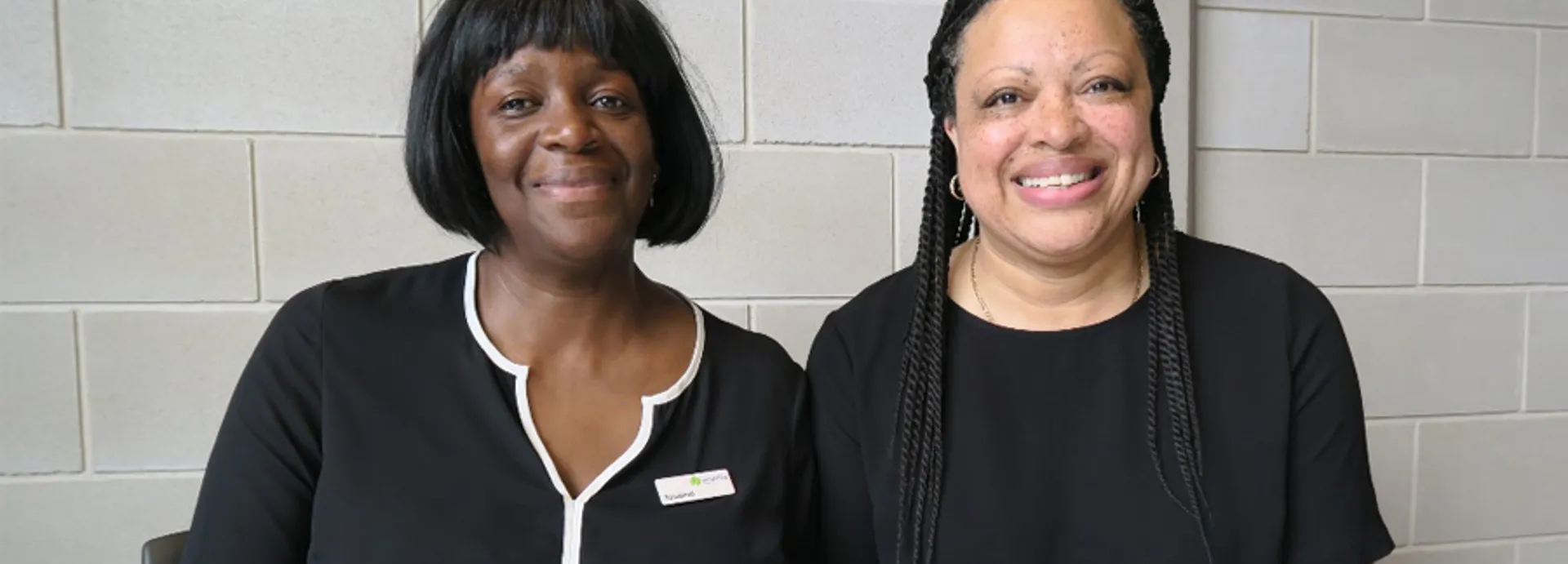June 2017
Training to help NHS staff guide patients through 'care maze' piloted at UCB
Read time: approx 1 mins
Thirty receptionists from GP surgeries across Birmingham have attended UCB to pilot an NHS training course designed to help them guide patients through the maze of care services.
The University has been commissioned by Sandwell and West Birmingham NHS Trust to deliver the government’s pilot Care Navigators course, which is currently being trialled UK-wide to ease pressure on front-line clinicians and improve overall quality of patient care.
As ‘link workers’, non-clinical staff who receive the three-day training are equipped with information to identify and signpost people to a diverse range of services, from financial support, social care and psychological services to arts, faith and education.
The role of Care Navigator, who might be a GP receptionist, ward clerk, pharmacy technician or non-clinical frontline worker in A&E, also includes providing help with self-management, supporting people and carers with long-term conditions and care plan facilitation.
As well as information on both local and national support services, areas covered on the training course include key communication skills, medical terminology, patient-led care and equality and diversity.
Lorraine Stevenson, a receptionist at Oldbury Health Centre who attended yesterday’s training session with four colleagues, said it would make a huge difference.
“Rather than patients using up a GP appointment, we can recommend more appropriate services to best help them at the first point of contact,” she said. “For example, the free Umbrella service at Boots, which helps with everything from contraception to drug misuse.
“Learning key medical terminology in the training was also useful. It means when a patient rings up with a condition, we can better decide if they need to see a doctor or a nurse.”
Elaine Sinclair, a receptionist at Bellevue Surgery in Edgbaston who was joined by colleague Rosalind Buchanan, said: “The health sector has changed so much and, today, there are many, many services that patients can access. The trouble is they don’t know about them.
“For instance, people are living longer and often when a spouse dies, people don’t know what’s out there to combat isolation. They might need help with dementia. Being able to advise on services, groups and activities that suit them will, hopefully, be really useful.”
Vicky Wynne, Assistant Dean for UCB’s School of Education, Health and Community, said the idea was to create a more sustainable, proactive and integrated health and social care system.
“According to Health Education England, most people benefit at some point in their life from ‘navigation’ through encounters with different health services, agencies and professionals, often across a ‘confusing seascape of health, social and community care’,” she said.
“We were thrilled to win the tender to deliver this training, ultimately designed to help people navigate the care maze and access the right help, at the right time and in the right place.”
Find out more about UCB’s School of Education, Health and Community.
